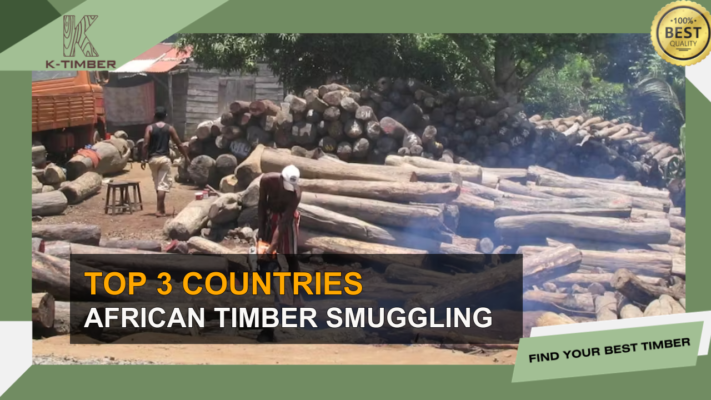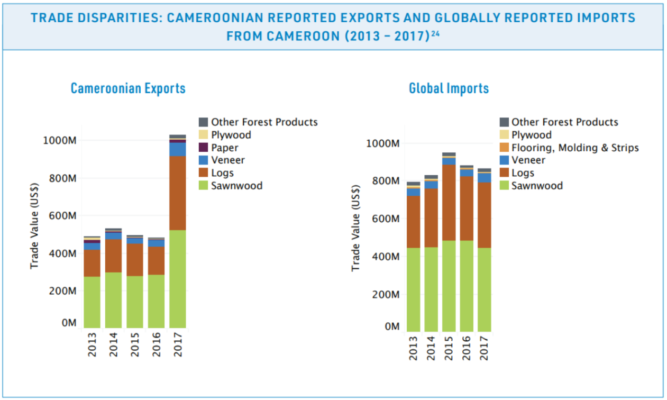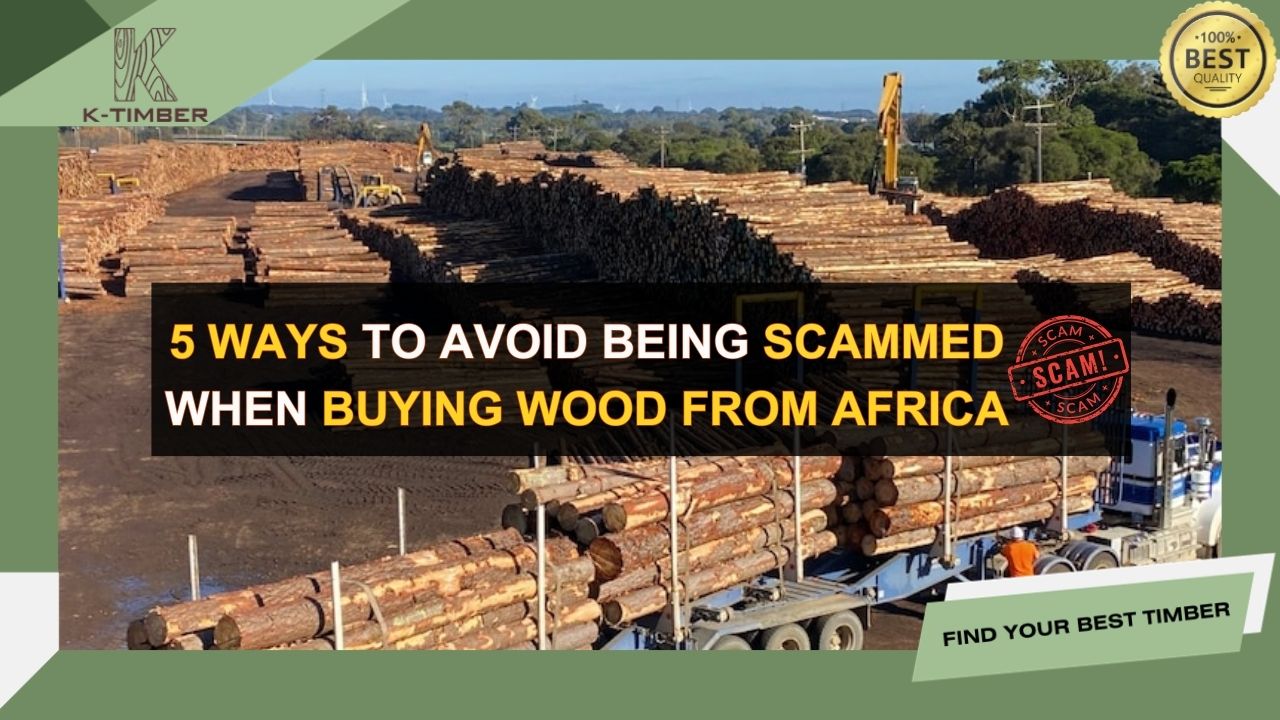Africa’s forests are facing severe threats, losing around US$17 billion each year due to illegal logging. The demand, especially from China, where imports increased by 700% between 2010 and 2014, is driving this destructive trade. As we look at the top 3 countries involved in timber smuggling, the devastating effects on local ecosystems and the global market become clear.

Table of Contents
Gambia
Gambia possesses a larger number of valuable species, making it the target for heavy timber smuggling. An investigation reveals Former Gambian leader Yahya Jammeh’s company, was involved in significant illegal timber trading through his company, Westwood Gambia. He made over $45 million from timber smuggling between 2014 and 2017.

This timber smuggling in Africa, driven by corruption and weak law enforcement, continues to destroy the region’s forests and fund the ongoing conflict in Casamance.
Congo
The Congo Basin, often referred to as the world’s second lung after the Amazon, is facing a serious threat from illegal logging. The vast forests in the Democratic Republic of Congo (DRC), especially those containing valuable hardwoods like African mahogany, have become a major center for timber smuggling.

In the past 20 years, hundreds of millions of dollars worth of these protected hardwoods have been illegally cut down, with over 90% of the timber lacking the necessary legal permits. The smuggled timber often passes through East African countries like Kenya, Rwanda, Tanzania, and Uganda, where it is processed or exported. The Lia border point between the DRC and Uganda has become a key spot for this illegal trade.
Cameroon
Cameroon’s illegal timber trafficking is a complex issue that results in the country losing approximately US$60 million annually.

Despite many attempts being made since 2017, Cameroon’s illegal logging and smuggling are fueled by political corruption, with the country ranking 149/180 on the Corruption Perception Index. Reports indicate that officials collect over EUR 46 million annually in bribes, enabling widespread illegal logging due to weak law enforcement and ineffective anti-corruption measures.
Consequences of African Timber Smuggling
African timber smuggling has ben leaving devastating consequences, with the continent losing an estimated US$17 billion annually due to illegal logging. This illicit trade has led to the destruction of approximately 40 million hectares of forests, threatening over 1,000 species of African wood.

Socially, the Timber smuggling in Africa creates social instability by funding criminal networks and armed groups, including terrorist organizations like Boko Haram. In countries like Cameroon and Nigeria, money from timber smuggling is used to support conflicts, forcing people out of their homes, worsening poverty, and contributing to ongoing violence. The trade also increases economic inequality, as the profits go to corrupt officials and international criminals, leaving local communities to face the negative impacts of environmental damage and economic hardship.
How to Tackle Timber Smuggling
Many efforts to combat African timber smuggling have been made. Many wood projects now require strict compliance with documentation, such as FSC and EUTR certifications, making it essential for buyers to carefully select their sources. This emphasis on legal and sustainable sourcing is driven by regulations like the EU Timber Regulation (EUTR) and CITES listings, which control the trade of endangered species and prohibit illegal timber in markets. As a result, buyers must ensure they are sourcing wood from reputable suppliers who adhere to these stringent requirements, reducing the risk of supporting illegal logging and promoting responsible forest management.
Read more: Top 5 African Wood Suppliers in the World
Conclusion
Timber smuggling in Africa causes immense harm, with billions lost annually, environmental destruction, and increased conflict. Countries like The Gambia, Congo, and Cameroon are severely affected, driven by corruption and global demand for valuable woods.
Therefore, it’s crucial to purchase wood from reputable suppliers with full certifications such as FSC and EUDR. At K-Timber, we are committed to providing high-quality wood with clear origins, ensuring transparency and dedicated customer support. Partner with us to build a sustainable future in the timber industry.










